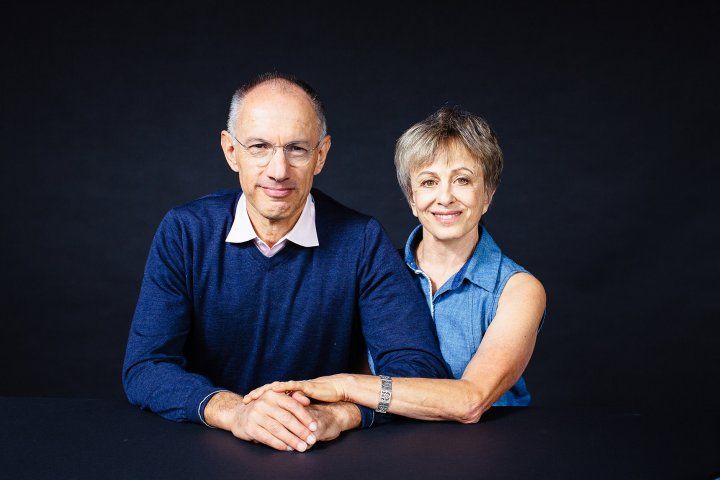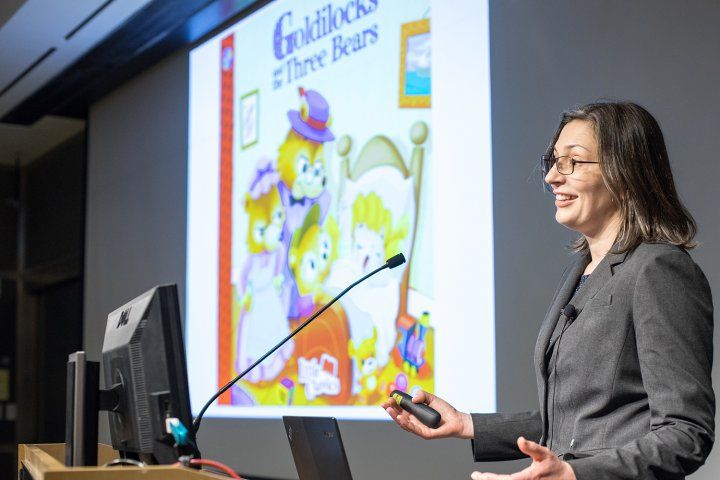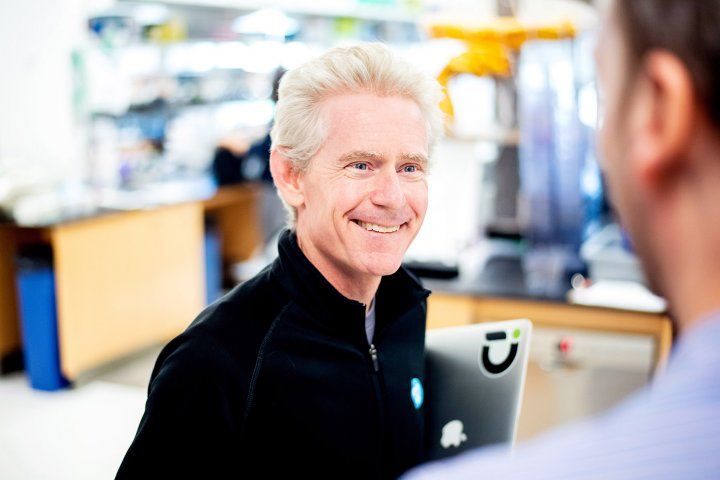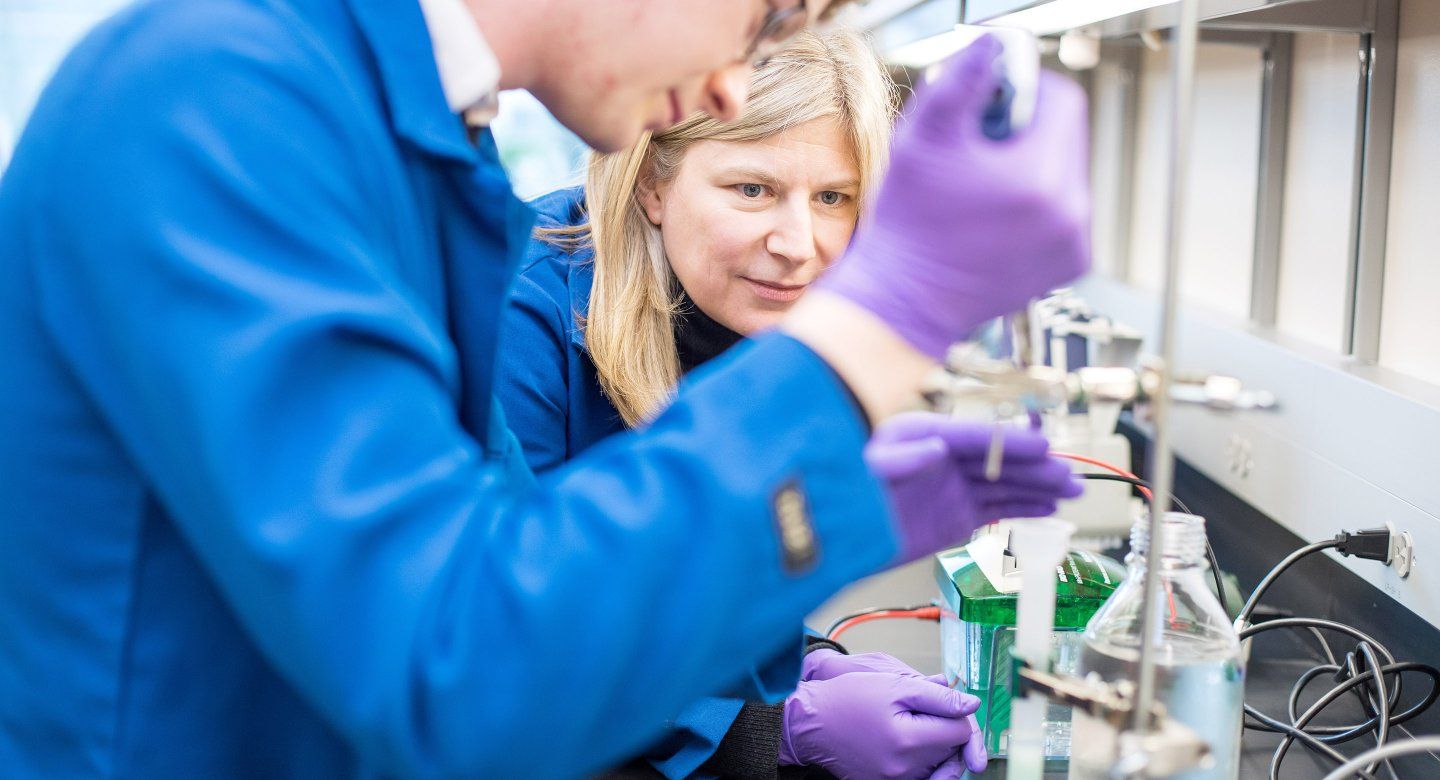$25M Gift Establishes Permanent Endowment for Audacious Research Funding Program
One of the shining jewels of UC San Francisco’s research program has received a $25 million gift that will ensure the success of its daring mission for many years to come. The newly named Sandler Program for Breakthrough Biomedical Research – previously known as the Program for Breakthrough Biomedical Research (PBBR) – has for 23 years supported the boldest, least explored research ideas in the life sciences.
The program, the brainchild of Nobel laureate and former UCSF Chancellor J. Michael Bishop, MD, is unconventional in its audacity, simplicity, and speed: PBBR applicants are asked to describe their most adventurous idea for a research project, in two pages or less, and in return they receive a funding decision within 30 days.

Sir Michael Moritz KBE and author Harriet Heyman through their Crankstart foundation have established a permanent endowment for the newly named Sandler Program for Breakthrough Biomedical Research. Photo by Elena Zhukova
The $25 million gift, from venture capital luminary Sir Michael Moritz KBE and author Harriet Heyman through their Crankstart foundation, establishes a permanent endowment for the unusual program. The gift was part of “UCSF: The Campaign,” a $5 billion fundraising initiative launched by the University in 2017. Inspired by the generosity of Moritz and Heyman, an anonymous donor has stepped forward to commit a large bequest to the endowment to further ensure the initiative remains sustainable over the long term.
Since its inception, PBBR-supported research has yielded more than 3,000 peer-reviewed scientific publications, almost 90 patents, and $1.5 billion in follow-on funding, including more than 300 National Institutes of Health (NIH) research grants. In just the last year, PBBR-funded work has unveiled potential drug targets to fight SARS-CoV-2 infection; driven the development, from concept to production-ready molecule, of AeroNabs, an inhalable COVID-19 preventative; and enabled comprehensive testing and public health initiatives in hard-hit San Francisco neighborhoods that are serving as national models for the pandemic response.
The addition of the Sandler name honors the program’s founders, the late Herbert and Marion Sandler, whose Sandler Foundation launched PBBR in 1997. The Sandler Foundation, which also supports the Sandler Fellows program at UCSF, has provided over $75 million in vital ongoing support to PBBR and remains a steadfast funder.

Danica Fujimora, PhD, delivers the 2017 Byers Award Lecture, a longtime tradition for the basic science community sponsored by the Sandler Program. Photo by Susan Merrell
“We are delighted to ensure that the excellence of UCSF’s Sandler Program continues in perpetuity,” said Moritz. “It has been the spark plug for bold research that provides critical breakthroughs for understanding health. While the majority of our recent grants have been to help cushion the terrible consequences of COVID-19 for communities under siege, the pandemic has shown that it has never been more important for everyone to invest in first-rate science and the people who devote their lives to discovery.”
Moritz and Heyman are part of a cadre of entrepreneurs and innovators who have recognized the importance of funding mechanisms to advance high-risk, high-reward ideas. Other PBBR supporters include Michelle Yee and LinkedIn founder Reid Hoffman, and Allen & Company, which, under the leadership of Herb Allen III, recently established the PBBR COVID-19 Response Fund to address the urgent need for rapid-turnaround research on the COVID-19 pandemic.
PBBR’s track record illustrates how philanthropy can play a unique role in backing high-risk, high-reward research projects. Most funding sources for science, including the majority of grants from the National Institutes of Health, are structured in ways that nudge scientists onto research paths already followed in their labs. But PBBR prizes the most daring research proposals, despite the real risk that many of these ideas will not pan out.
“Scientists have bold ideas in the shower every morning,” said UCSF’s Keith Yamamoto, PhD, emeritus professor of cellular and molecular pharmacology and special adviser to the Chancellor for science policy and strategy, who served as the PBBR director for 21 years. “Generally, because of the conservatism and slow pace of the federal funding system, it’s clear that those ideas won’t win support, so they just wash down the drain. PBBR offers a way for our scientists to take those ideas and run with them.”
Current PBBR Director Joe DeRisi, PhD, professor of biophysics and biochemistry at UCSF and co-president of the Chan Zuckerberg Biohub, knows first-hand the impact of bold philanthropic support.

Joe DeRisi, PhD, the current director of the Program for Breakthrough Biomedical Research, arrived at UCSF as one of the first Sandler Fellows.
DeRisi arrived at UCSF in 1998 as one of the first Sandler Fellows, now a well-established program supported by the Sandler Foundation. For the Sandler Fellows program, UCSF seeks out the most promising freshly minted PhD and MD scientists and provides them with a UCSF lab of their own – sidestepping the traditional years-long stint as a postdoctoral researcher in another scientist’s lab.
“The Sandler Fellowship and the additional PBBR funding I’ve received over the course of my UCSF career jump-started my most creative work in ways that otherwise wouldn’t have been possible,” said DeRisi. “And the PBBR approach is the fastest path to getting the answers we need in this crisis: How does this virus work, how does it spread, and how can we stop it?”
In 2003, just five years after coming to UCSF, DeRisi and colleagues used cutting-edge techniques to confirm that the SARS outbreak in Asia was caused by a novel coronavirus – now known as SARS-CoV-1. As the world fights another novel coronavirus, DeRisi sees resonance in PBBR’s support of critical COVID-19 research.
“For more than 20 years, PBBR has been UCSF’s signature initiative to advance our scientists’ most daring ideas with a minimum of red tape,” said UCSF Chancellor Sam Hawgood, MBBS. “Harriet and Michael’s generosity and that of their fellow donors ensures that the Sandler Foundation’s pioneering vision will continue to inspire and support our most gifted life sciences researchers for generations to come.”
The University of California, San Francisco (UCSF) is exclusively focused on the health sciences and is dedicated to promoting health worldwide through advanced biomedical research, graduate-level education in the life sciences and health professions, and excellence in patient care. UCSF Health, which serves as UCSF’s primary academic medical center, includes top-ranked specialty hospitals and other clinical programs, and has affiliations throughout the Bay Area.
